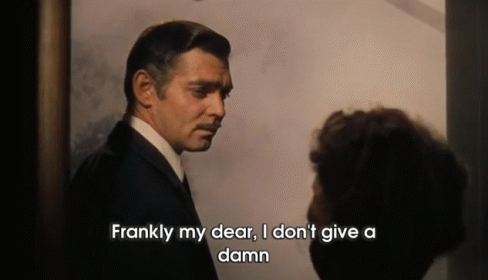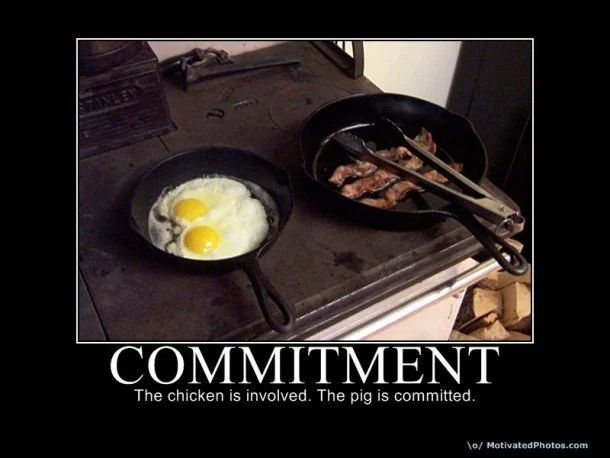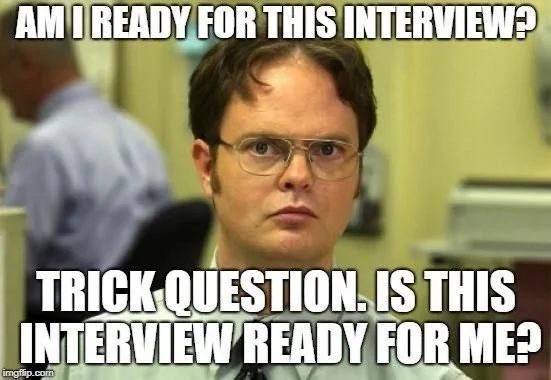How to Get the Damn Pharmacy Job You Want
Steph’s Note: This week, we’re continuing our damn series with a new tl;dr voice, Dr. Christie Baker. Christie is the pharmacy manager at Texas Oncology in Waco, TX. She graduated from Texas Tech in 2020 in Abilene but lived all over the US before she landed in Texas. Christie is a big fan of mentorship and training which led her to becoming part of the NCODA Residency Council. She is very excited to be part of providing resources to pharmacists and pharmacy students interested in pursuing a career in oncology.
If you’re a long time tl;dr fan, you know we’ve published similar trains of thoughts in our Market Saturation post as well as provided you with numerous resources to help you be a standout job applicant (here, here, here, here, here, and here!). I mean, seriously. NUMEROUS. So why are we covering this topic yet again?
Google Earth captured this image of Steph last week. The last 2.5 years have really taken their toll as you can see. (Image)
A - It’s so stinking’ important. And B - Christie offers a fresh outlook and recent experiences given she graduated in 2020. So if you think us old geezers who graduated over a decade ago (eesh) are just out telling kids to get off our lawns, maybe something she says will resonate more with you. So let’s hear what she has to say!
You’ve seen it on the online blogs. You’ve been lectured by practicing pharmacists. You’ve heard the rumblings from classmates…
The pharmacy world is saturated.
With pharmacy schools popping up all over the country with reckless abandon in the last 20 years, there are so many new grads. If you remember anything from your Econ 101 class, more supply means less demand. We aren’t seeing the same sign-on bonuses and incentives that the seasoned pharmacists reminisce about. Many places are cutting hours and holding raises because, If you don’t like it, there are at least 10 new pharmacists that are willing to take your place.
Pharmacy employers when employees are unsatisfied. (Image)
Sorry, not trying to be a Debbie downer. Just speaking some truth.
But now that the doom and gloom is out of the way, let’s talk about jobs! I’m assuming you’re pursuing a career in pharmacy because you enjoy it, right? Because I really hope you’re not taking on mortgage-sized student loans just because you can get a decent paycheck. Not really a great reason at this point and not exactly a sustainable impetus.
Assuming you’re doing this for more than the money, this means you need to find a job that interests you. For some people, the ideal role is using their pharmacy knowledge in a clinical setting to impact health decisions. Others are passionate about research or want to be voices in the pharmaceutical industry. There are even some that *gasp* love the pace of a retail setting and the ability to integrate as a healthcare professional within their community.
The point is there are options out there, and you need to nail down what interests you. I remember having classmates that, when asked what they were going to do after graduation, they would say, “Eh, I’ll just work at ___.”
Well, unless you have contacts and a spectacular resume, that kind of attitude is a smidge concerning for future employment.
So what are you doing to set yourself apart from other applicants? You’ve spent years preparing your knowledge, just like everyone else. You are super smart, just like everyone else. (In case you hadn’t noticed, becoming a pharmacist isn’t easy.)
So how do you convince someone that they should pick you?
I’m glad you asked. Let’s take a look at some strategies.
Increase Your Face Time
Ok, you might want to clean up that beautiful face first… (Image)
No, not the iPhone app. I think everyone at this point in time has had plenty of practice with virtual meetings. Now that the world is opening back, you need to determine how to get that smashingly beautiful face of yours back out there!
Connections are really key to landing a great job. Not only do they help with references, they are also usually the first to let you know of openings not yet officially published.
It’s like having a realtor friend who has that pocket listing you get to see before the other 50 buyers. Who wouldn’t want that?!?
So how do you decide where to involve yourself? As a student, attend meetings for multiple organizations that sound like they could be up your alley. Then, after checking them out a couple times, narrow down your scope. It was through this method that I found an interest in oncology - something I didn’t realize going into pharmacy school.
I’m not saying we need bacon level commitment all the time, but perhaps a little more than the chickens? (Image)
Btw, do not join every organization as CV fluffers. Employers see right through that. I know you are thinking that it shows involvement, but in reality, it looks more like a lack of direction and commitment.
Commitment to people, activities, and causes is how you make worthwhile connections. Consistently going to meetings, attending and actively participating in conferences (not just showing up for free stuff), and talking to other members is how you make yourself memorable. This is how your resume or residency application gets moved to the review pile. If you get your face out there, you become more than just a name on a piece of paper.
People get hired, not paper.
Build Your Confidence
Anyone else here blow a solo during a show choir performance and then develop crippling fear of public speaking or messing up? No? Just me?
Gotcha.
(Image)
People LOVE confident people. To be clear, we are not talking arrogant people…just not bumbling. Well, here is the best secret about confidence as a soft skill for pharmacists: it can start as a façade.
You’ve heard the “fake it til you make it” adage, right? It’s totally true. When I started pharmacy school, I decided that since nobody knew me, I was going to pretend I was confident.
I would run for leadership in organizations even though that was terrifying. I would answer questions in class, trying not to have a shaky voice. I have even been a speaker at conferences and recorded narrated training for my current company.
Pretty confident, you think?
Eh, I’m still working on it… But it’s something that I think is very important for a practicing pharmacist. Employers need to know that medical providers will trust your judgment. They need you to be able to lead their pharmacy (this goes for staff AND managers), and patients need to be able to trust that you know what you are doing.
Just to be clear, confidence does not mean you have to know everything. In fact, by saying you don’t know something but will research it and return with an answer, people will trust your responses. Many students and new pharmacists are scared they may not know an answer off the top of their heads, so they simply guess. That, my friends, is a rapid trip down Patient Harm Lane with a stop at Untrustworthy Pharmacist.
Instead, by responding that you need to look into the issue, the person requesting the information knows what you ultimately provide to them is sound and well-researched. Then, in the future, you will have a more solid working rapport with that person.
Now, if you are sure of the answer, deliver with confidence! I promise, it will show future employers/residency programs/fellowship programs that you will make a great asset to their team.
Research BEFORE You Interview
You’ve scheduled the interview, and now you’re freaking out. You’re “bad at interviewing” (says 99% of the world). I mean, it’s literally voluntarily having someone judge you.
Sounds super fun, am I right?
Maybe not 100% the thought process for approaching an interview, but there’s some truth to it for sure. (Image)
The thing many folks get wrong about an interview is thinking that it’s one-sided. In reality, interviews are not only a time for potential employers to evaluate you but also your chance to see if this place is the right fit for YOU. Treat it that way. They are interviewing you, and you should be interviewing them.
To get the most out of an interview, you need to do your homework. They have your resume, so you better know theirs. Read up on the employer’s website. Know their mission. Have they received any special recognitions? Find things about the company that you like and can talk about.
I mean, everyone likes to talk about themselves at least a little, true? So make the interview a conversation. This shows that you know who they are, what you are pursuing, and how you could mesh with them.
There’s a reason interviewers always ask if you have any questions. Employers want engagement. They want to gauge your knowledge of (and passion for) a position because that translates to retention. This being said, just remember that they are trying to fill a position for a human… So don’t regurgitate their company values back at them like a robot.
Whoa. You too like being a pharmacist?! Who knew!! Simmer down now... (Image)
For example, if one of their core values is collaboration, you wouldn’t tell the interviewer that you read on their website that they value community involvement which is CrAzY because you TOO like the community.
Cool. You sound like a weirdo.
Instead, you could start a conversation about how you saw that they value community involvement and ask what kind of programs they offer. Maybe ask if the pharmacy has any specific initiatives or ongoing service projects.
This shows that you did your research prior to walking through that door but is on a deeper level than just using their own buzzwords. You are instantly more memorable from the other applicants that said they had no questions. Also, it’s ok to ask the same questions of different groups throughout the day. You may receive additional perspectives by doing this, so don’t think you “used up” all your questions after the first interview session.
The tl;dr of How to Get the Damn Pharmacy Job You Want
Long story short, yes, the pharmacy world is pretty saturated. Jobs are more limited than they were just a few short years ago. However, employers are still looking for quality pharmacists, aka knowledgeable, personable, capable, driven pharmacists.
Gone are the days of waltzing into a job without preparation. You really need to…
Truly want to be a pharmacist. Don’t just pick this profession because of the paycheck. It’s way too much work with too much at stake for patients for that.
Pursue a job role that excites you. If you like what you’re doing, you’ll be far more effective for your patients.
Find a company/residency/fellowship that is willing to hire you AND that you want to work for. It’s a two-way street.
Market yourself as a valuable employee by being calm, confident, and attentive to the details. Don’t forget to do your research ahead of your interview.
Just remember that at the end of the day, nobody is going to work as hard for your career as you will. Why not give it all you’ve got?
Scotty knows what’s up. (Image)








